Repo
Run the program and see how it behaves
Open the program in IDA
We will notice that there is some kind of loop. I have highlighted the section in Pink, which I want to avoid.
There is also some kind of a counter check to see if it reached 0x14, which is 20 in base 10. Hence, the loop will loop for a max of 20 characters.
Looking at the circled algorithm, we can see that the counter is always retrieved from edx.
- Updated counter is always retrieved from
edx - Index = (counter + counter*4) * 16
- Get byte from binary pointed to by RSI[Index]
- Get byte from user input pointed to by Input[counter]
- Transfer the user input byte such that
input_byte = ((input_byte XOR 0x32)+1) XOR 0x32 - Ensure the new input byte amd the byte from the memory are equal, and proceed to check the remaining bytes.
What we know so far are that there are a total of 20 iterations. We know our user input is being check to a value from memory at a location determined by Step 2 above.
By calculating the Index for possible values if Counter in range 0 to 19 inclusive, we can compute our Index values to be 0, 80, 160, 240 and so on. So basically we are accessing the memory in increment of 80 bytes.
Look at the memory where the values are stored.
We can see that the values are from a .data section in memory.
By looking at the memory, the starting byte is 0x3A. The next byte would be 80 positions from that.
I used gdb to go to the location and retrieve all the 20 values.
I decided to set the breakpoint at that location.
After loading gdb, I ran the file once, then I proceeded to do the command info files, to get the location of the current .text section.
I set a breakpoint.
b * 0x000055555555483b
Then I ran the application again, run.
Once hitting the breakpoint, I proceeded to print out the 20 characters from memory.
The bytes collated was [0x3a, 0x31, 0x52, 0x30, 0x34, 0x36, 0x52, 0x30, 0x33, 0x5c, 0x3a, 0x51, 0x73, 0x30, 0x35, 0x45, 0x5c, 0x31, 0x5a, 0x34].
Then I proceeded to use python to reverse the algorithm as such.
a =[0x3a, 0x31, 0x52, 0x30, 0x34, 0x36, 0x52, 0x30, 0x33, 0x5c, 0x3a, 0x51, 0x73, 0x30, 0x35, 0x45, 0x5c, 0x31, 0x5a, 0x34]
def f(input):
... for i in input:
... dec = ((i^0x32)-1)^0x32
... print(chr(dec))
...
f(a)
5
0
m
3
7
1
m
3
2
_
5
P
r
3
4
D
_
0
U
7


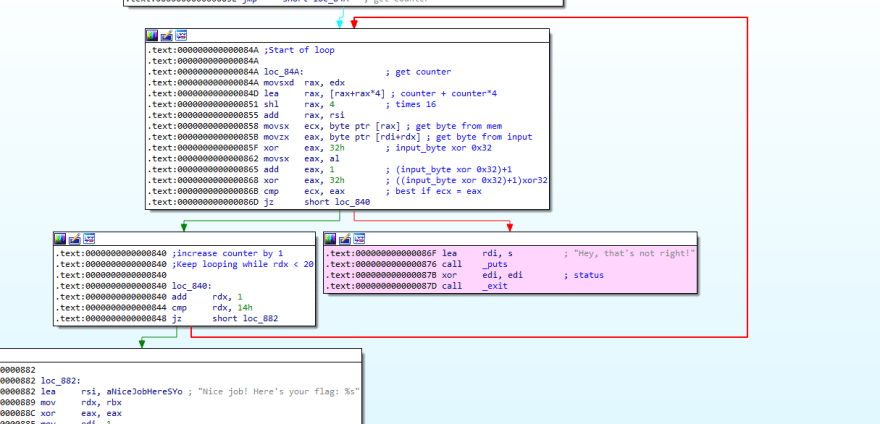
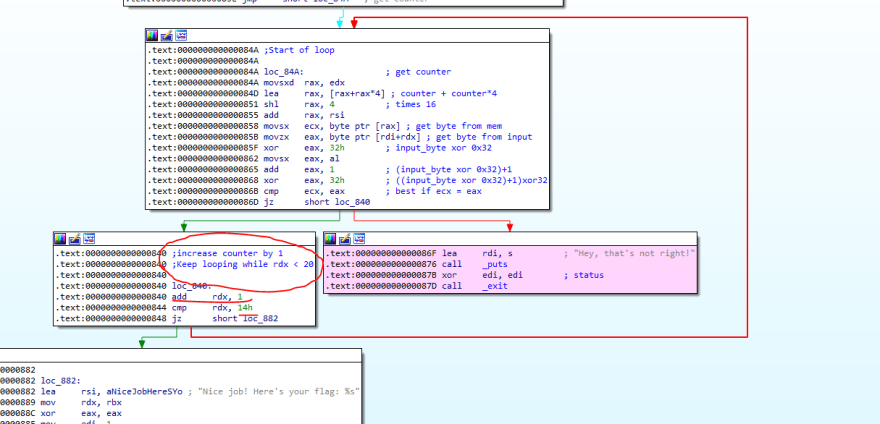
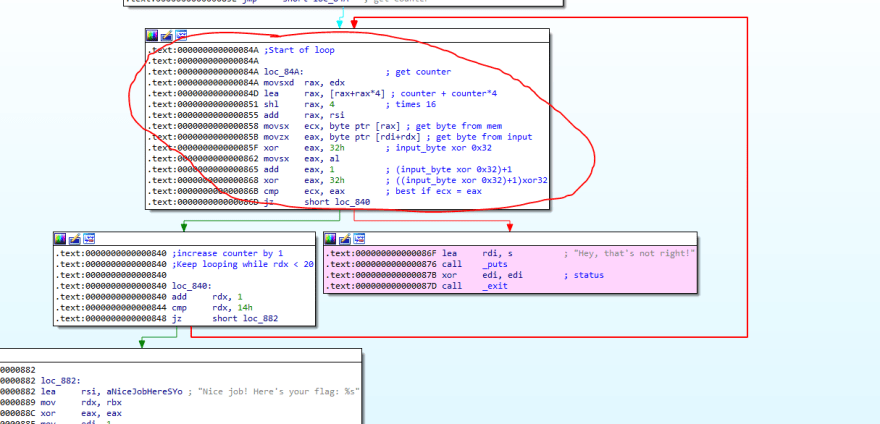

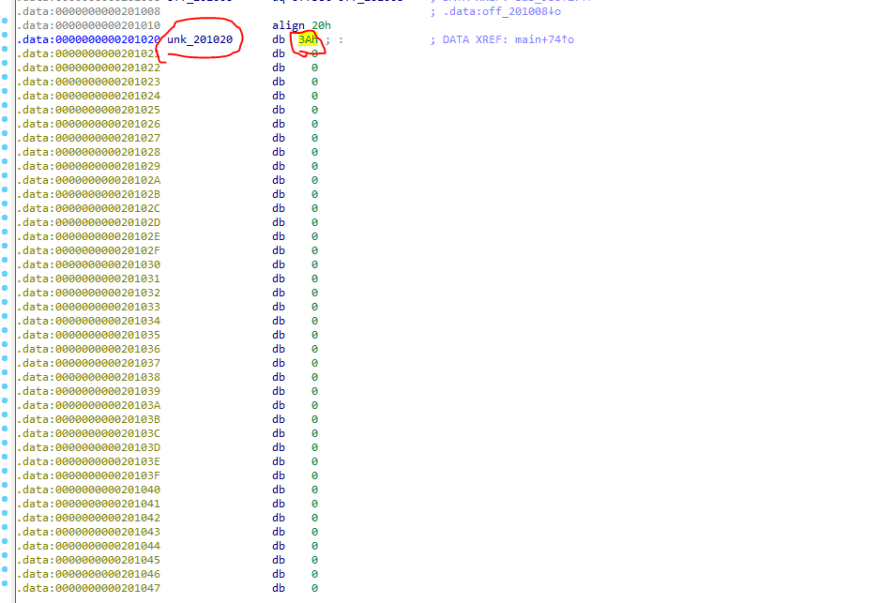

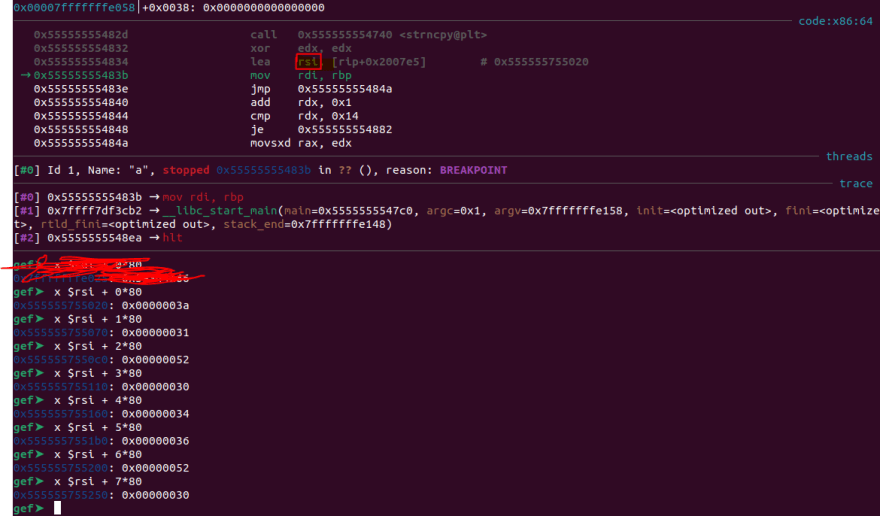






Top comments (0)